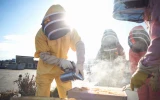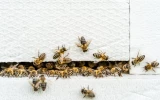Bees Behave Different in Hot Weather: Here's How
Bees are extremely sensitive to the temperature of their environment. In fact, temperatures higher than 100 °F may cause them to behave differently, and even abandon their hive.
During extremely hot weather, all production in the hive stops, and worker bees would really have a hard time gathering food and pollen since they are very slow in flight and would not be able to fly as far or even take off at all. Even the queen is affected and will stop laying eggs.
Like us humans, bees need to find ways to keep cool in hot weather. However, for these little creatures, their situation is much more serious. Here's why.
Summary
- Bee production stops in hot weather.
- The hive and the queen bee are affected by extreme heat.
- Bees are often aggressive to several factors brought by a hot weather.
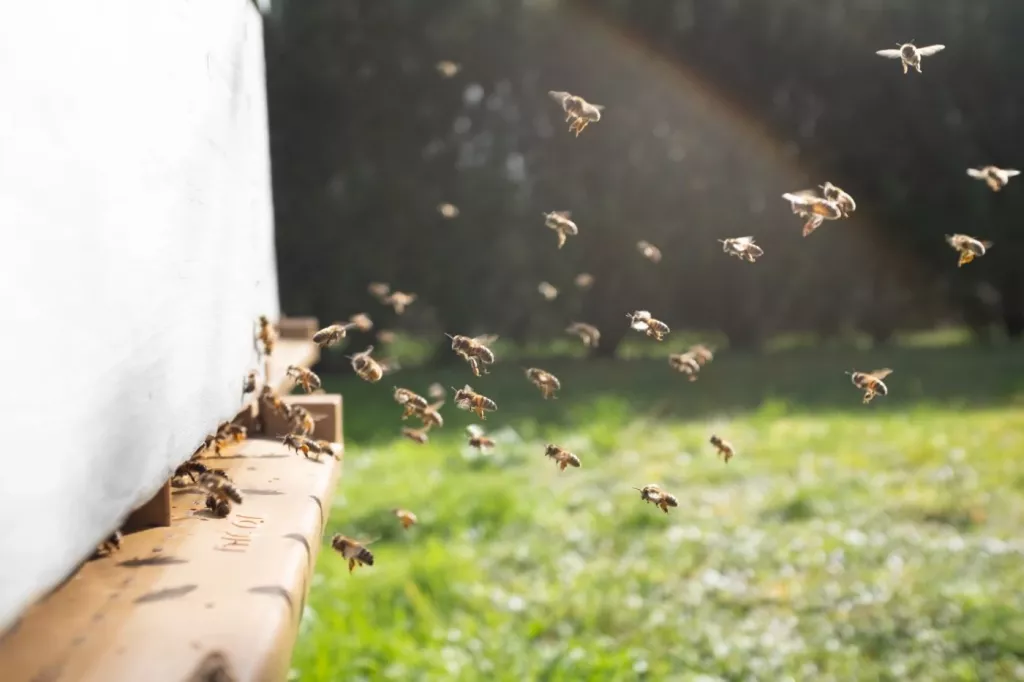
On this page:
Bees Behave Differently When it Gets Too Hot
There are several things that can happen to bees, and overheating is one of them. During hot weather, the bees move outside the hive to find cooler spots. They also look for nectar, water, and pollen during the day to help regulate their body temperature.
Inside the hive, it is 95 degrees, so they do their best to maintain a steady temperature during the summer. When the hive gets too hot, they fan its wings to create an air current that helps cool it down. On the other hand, when it gets too cold, such as in winter, they also make sure to keep the hive warm by forming a ball and vibrating their flight muscles to generate heat.
In addition to this, there is a possibility that bees can die of heat exhaustion if they stay outside the hive in extremely hot weather. It is also possible that a bee colony may have to abandon its hive altogether.
If they are to stay in the hive, bees can also die, and the worst part is that their queen bee can die too. This is why beekeepers need to ensure that their hives are in cool spots and check for overheating during hot weather.
Are Bees More Aggressive During Summer?
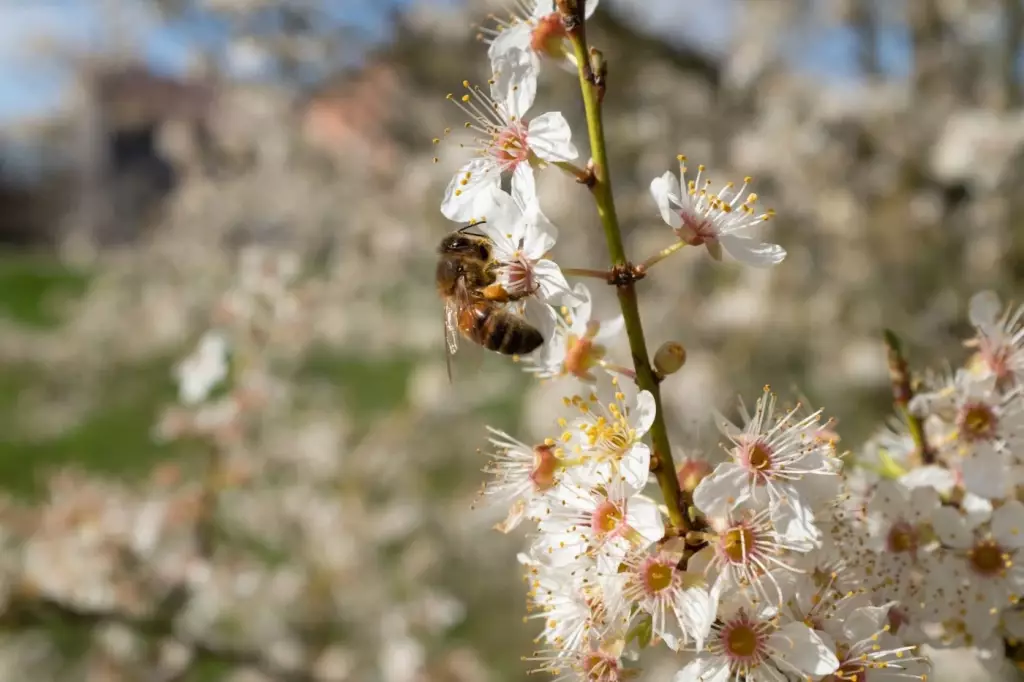
During summer, some people might think that bees become more aggressive due to the heat. However, this is not true. Bees’ aggression actually has little to do with the weather. Different factors will cause bees to become more defensive and aggressive; these could be:
- Lack of food resources such as nectar
- Inadequate space in the hive
- Feeling threatened by humans or other animals
- Mite Infestation
- Drought
- Hives are being robbed by other honey bees
Therefore, while it is true that hot weather can be a challenge for bees, their aggression has little to do with the summer months and more to do with other factors. During these months, between summer and fall, bees work extra hard to keep their hive cool and protect themselves from the heat.
The bees also prepare for winter, and not being able to do their job properly during the hot months can lead to a weakened colony and eventually, a decrease in honey production.
It is crucial for beekeepers to ensure their hives are in a cool spot and take the necessary precautions to keep their bees healthy and safe. This way, when winter comes, the colony will be strong and ready to face whatever comes their way.
How Do Bees Stay Cool?
During a heatwave, bees can take a number of measures to cool down and protect themselves from the heat. It's important for bees to stay hydrated and cool during the summer months, as this helps them regulate their body temperature.
Here are some simple ways that bees stay cool in the summer:
Bees fan their nest
Bees use their wings to fan the hive and create an air current that helps cool it down. Bees inside the hive will also form a cluster to help keep the temperature down.
Bees look for ponds or water sources
Bees will look for water sources, such as ponds, streams, and gutters, to cool themselves off. They will also drink the water and then spread it around the hive to cool it down.
Bees take gaps between foraging
When it gets too hot outside, bees take breaks between foraging trips, so they can rest and cool down. They also need to have access to water sources, so they can stay hydrated and cool.
Bees seek out for shade
Bees will look for shade to protect themselves from the heat of direct sunlight. They also tend to go out foraging during the cooler times of the day, such as in the morning and late afternoon.
Bees leave their hive
When the temperatures get too high, bees might decide to abandon their hives and look for a cooler spot to establish a new one. Therefore, it is important to take measures to protect bees from hot weather. This includes providing them with a cool spot away from direct sunlight, keeping water sources near the hive, and making sure there is plenty of food and pollen in the area.
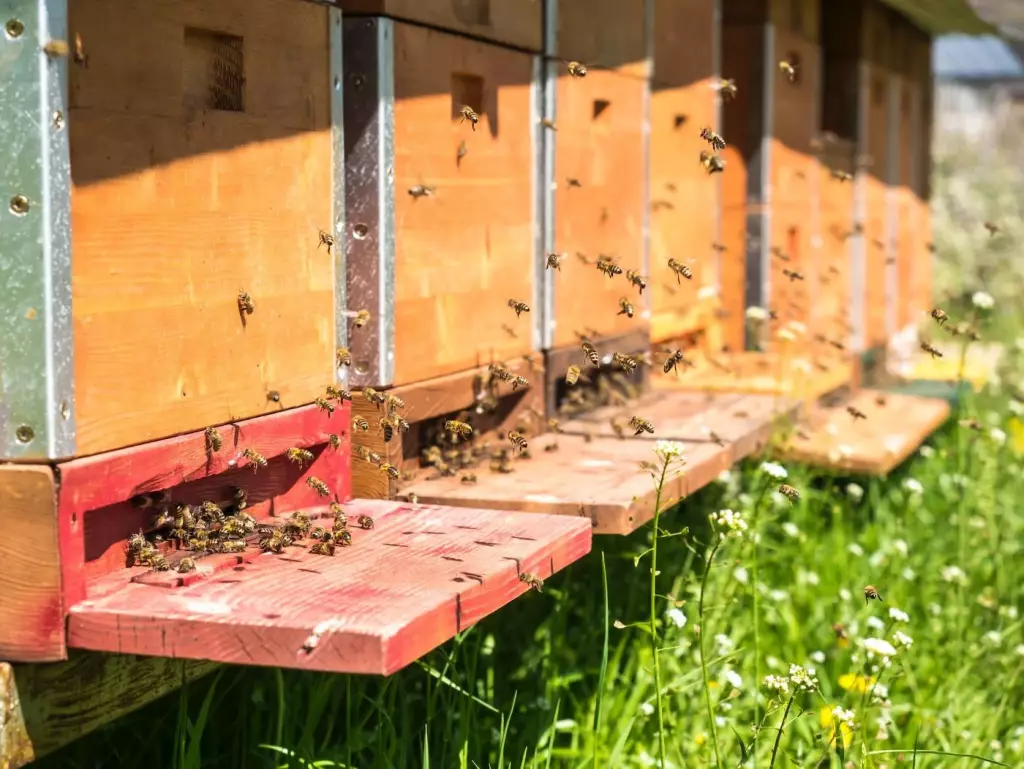
Ways Beekeepers Can Help Bees During Hot Weather
Summer is the time for beekeepers to start preparing for the hot months. Here are some tips on how you can help keep your bees cool and safe during this time:
Provide shade
Make sure your hives are away from direct sunlight and in an area where they can have access to shade. Making a small canopy over the hive can help reduce the heat.
One tip is not to create the canopy from metal, as this can cause the hive to heat up. Instead, use wood or cloth that will help keep the hive cool.
Keep water sources nearby
Provide them with plenty of water sources, such as ponds, streams, and even gutters. This will help your bees stay hydrated and cool during the hot months.
You can add water bowls near the hives and even mist their hive with a water sprayer.
Feed your bees
During hot weather, bees need more food and pollen to stay nourished and strong. Make sure you provide them with plenty of resources so they can continue their work throughout the summer months.
Use mite control
Mites can be a major problem during hot weather. Make sure to use mite control and treatment options so that your bees remain healthy and safe.
Offer proper ventilation to the hive
Proper ventilation can help regulate the temperature inside the hive, so make sure that your hives have adequate openings. This will ensure that the heat doesn’t become too extreme for your bees.
Check your hives regularly
Beekeepers should check their hives regularly to make sure that the bees are healthy, and that the hive is not too hot. If you notice any issues, take action right away to prevent further damage.
By taking the necessary precautions, beekeepers can ensure that their bees are safe and protected during hot weather. Remember, the summer months can be a challenge for bees, but with a bit of preparation and care, you can help make sure that your colony remains strong and healthy.
How Climate Affects Bees
Climate plays a huge role in the lives of bees, as it can influence their behavior and health. Extreme weather conditions such as heatwaves, droughts, and floods can all have an effect on the bees.
During hot weather, bees are at risk of overheating, which can cause them to become disoriented and die. They also need access to water sources in order to stay hydrated and cool. During droughts, they may be unable to find enough food sources as the nectar in flowers and plants becomes scarce.
On the other hand, winter can be challenging for bees as well. Hives need to be protected from the cold by providing insulation and enough food for bees to survive the winter.
